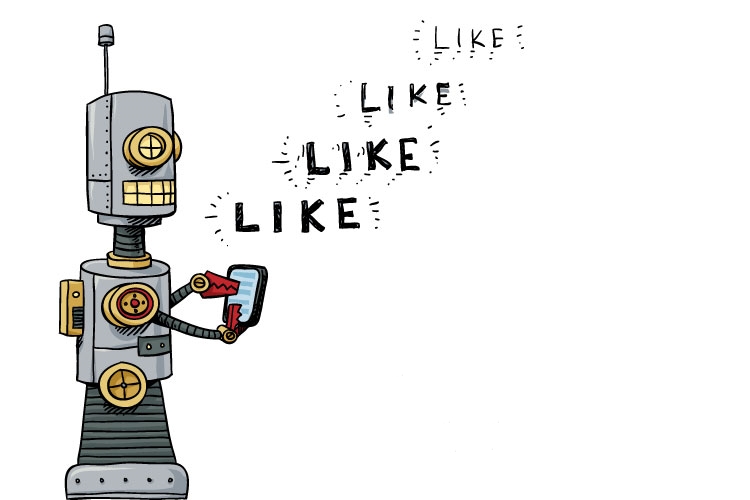What is a social media bot and what impact does it have?
1. What exactly are social media bots?
The Office of Cyber
and Infrastructure Analysis (OCIA) defines social media bots as programs that vary
in size based on function, capability, and design; and can be used on social media
platforms to mimic human behavior and perform a variety of useful and malicious
tasks simultaneously. These programs use artificial intelligence, big data
analytics, and other programs or databases to mimic legitimate users in posting
content.
Social bots essentially automate social media interactions to mimic
human activity, but they perform at a scale that would be impossible for human
users.
Bots can be automated or semi-automated. Automated bots operate
independently based on human-set parameters, while semi-automated bots combine these
parameters with some human management. This allows users to create fake social media
accounts and personalities.
But not all social media bots are malicious. For
example, customer service chatbots are used to answer inquiries and make sales. They
can also deliver breaking news and events to the public, and even support
counterterrorism.

2. Some malicious applications include:
Terrorist
recruitment, propagating content to radicalize vulnerable viewers;
Online
harassment and dissemination of hate speech;
Disinformation and malicious
influence, spreading conspiracy theories and fake news;
Market manipulation
by spreading false information about a company or industry.
3. How
do malicious social media bots affect national security?
Political
processes: Social media bots can influence public opinion, build mistrust between
people and their governments, disrupt social processes and exacerbate geopolitical
tensions.
Financial security: Misleading content can cause economic damage,
costing the global economy an estimated $78B per year. This includes the costs of
reputation management, stock market crackdowns, and combating disinformation.
Public health and safety: Social media bots can engage in social movements,
change public opinion around global issues such as climate change, influence
vaccination rates, and recruit terrorists. The European Parliament views
disinformation as a human rights issue that violates privacy, democratic rights and
freedom of thought.
OCIA notes that the use of social media bots - and with
them, malicious bot behavior - is on the rise online in the U.S. Bots on social
networks such as Twitter may account for 5-15% of users, but exact numbers are
difficult to estimate. According to the New York Times, there is some debate about
how important social media bots really are.
Beyond accurate usage rates, the
online information ecosystem is becoming a priority for adversaries and nation
states. Social media bots are central to this landscape, and their impact on
national security is likely to expand and evolve in the coming years.